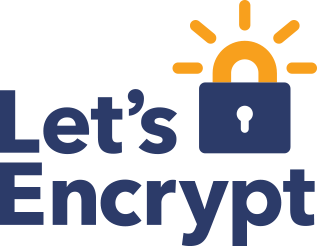SSL and Let's Encrypt
Par Eric Antoine Scuccimarra The first time I ever tried to install an SSL certificate on a web server was probably around 1999. At the time there were only a couple options - Verisign and Thawte if I remember correctly, the certificates cost a couple hundred dollars each, and you had to go through a lengthy and complicated process to get the certificate approved which involved compiling a lot of documentation (I remember being asked for a Dun & Bradstreet number for one thing), multiple phone calls, and took a couple weeks to complete. Once the certificate was finally approved and issued the process of trying to install it on the server was almost as complicated.
The first time I ever tried to install an SSL certificate on a web server was probably around 1999. At the time there were only a couple options - Verisign and Thawte if I remember correctly, the certificates cost a couple hundred dollars each, and you had to go through a lengthy and complicated process to get the certificate approved which involved compiling a lot of documentation (I remember being asked for a Dun & Bradstreet number for one thing), multiple phone calls, and took a couple weeks to complete. Once the certificate was finally approved and issued the process of trying to install it on the server was almost as complicated.
How times have changed. Yesterday I installed a certificate on this server. It was free and took about 15 minutes, most of which was spent trying to find the documentation. At first I was just messing around and decided to install a self-signed certificate, which was quick and easy, but having to click through the page which says that "this site is insecure" was nerve wracking, even knowing that it doesn't really mean anything. A quick Google search turned up lets encrypt which offers free SSL certificates that are recognized by most browsers.
As easy as installing an SSL certificate for Apache is, I then found CertBot which makes it even easier. The main page has instructions for different OSes and servers. For Ubuntu I just installed the certbot package and ran it, it asked me what domains I wanted the certificate to cover and for my email address and then generated it.
I was a bit wary of allowing CertBot to change my Apache config so I just had it generate the certificates and did the config myself. After I had no problems, on my other server I let CertBot do the config as well and had no problems at all. And when it was done SSL just worked, I didn't have to touch the config or even restart Apache, much less provide a DUNS number. I'd like to thank the EFF and Lets Encrypt for CertBot and for making this so easy.
Libellés: coding